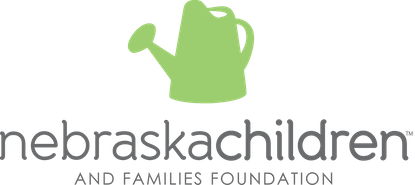Parent Engagement Guidelines for Child Well Being
Adapted from the FRIENDS National Resource Center for Community-Based Child Abuse Prevention
Scope
Parent engagement is a process not a product. It exists across a continuum of short term or time limited events to longer term or ongoing relationships. It is the full involvement of parent representatives versus token representatives. It is based on the belief that families have a unique and critical role in planning, implementing and evaluating family and community policies, systems and services. For this context, “parent” may mean biological parents, grandparents, foster parents, or other primary caregivers.
Rationale
Engaging parents is based on the concepts of Family Centered Practice which grew out of health, mental health and special needs services. True engagement of parents in health and human services, early care and education and other prevention and intervention systems recognizes that parents are the primary influence in young children’s lives and have continued influence through young adulthood. Parents, not practitioners, are the experts on their own children and so are essential team members for informing services and systems. Effective parent engagement improves the quality of programs and services and promotes more responsive systems that have better outcomes.
Methodology
Parent engagement may begin with small steps such as parent participation in informational and social events such as family fun nights, community health fairs, and meetings with child care providers or school teachers. The initial phase can progress to additional exploration of shared interests. Collaborations may conduct focus groups to elicit consumer input or sponsor community cafes--structured small group conversations that bring parents together to discuss topics important to them. From these groups, practitioners may find parents who are interested in sharing ideas and who are ready for new roles.
Practitioners may also identify parent participants through other existing groups, for example, Head Start Parent Advisory Committees, domestic violence and behavioral health parent support groups, parent education groups, school, church and civic groups, etc. Parents in these groups may already have developed useful skills for more substantial engagement. It may also be possible to identify parents who are at a later point in the family life span but who are able to remember and relate to families who currently have younger children.
In Nebraska’s Community Well-Being collaborations, short-term tasks that can benefit from parent input include participation in Service Array or other needs assessments, ad hoc review of brochures and other promotional materials intended to inform or recruit parents. Parents can also be powerful witnesses, spokespersons and advocates for community needs and resources.
Prior to participating in any new small or large group meeting, parents should be given an orientation or training. The orientation should include information on the purpose and structure of the group as well as their role, rights and responsibilities. It is also essential that parents, like all other collaboration members, have basic information on the purpose, processes (including decision-making), resources and accountabilities of the group.
Practitioners in the group may benefit from training on the value and pragmatic elements of parent engagement. This includes scheduling of convenient meeting times and locations, providing child care and transportation, showing respect for the input and feelings of all participants, focusing on family strengths and avoiding professional jargon. For practitioners who have primarily worked with parents as experts instead of as equal partners, parent engagement requires a new perspective.
True shared leadership will likely require an investment in developing the skills of parents.
Parents should be integrated in the collaboration (structure, decision making, workgroup membership). Separate parent advisory groups comprising mostly parents can be useful but, in general, parents should be part of existing workgroups.
See references for more information.
Common challenges
Parents may have personal concerns with programs, organizations or systems and need to express these. Practitioners need to be able to receive this input without offense and work with parents toward shared understanding of issues and development of solutions.
Professionals may need instruction on how to partner with parents, that is, shifting the balance of power and seeing parents as the primary experts on their own children.
Parents may need assistance in understanding less-than immediate or short-term resolutions to problems they identify. Or they may need help in knowing how valuable their input is in situations outside their immediate child and family needs.
See references for more information.
References
FRIENDS National Resource Center for CBRS Programs, Parent Leadership: Successful Strategies
Family Leadership Self-Assessment Tool for System-Building Collaborations
Families as Primary Partners in their Child’s Development & School Readiness, Kathy Seitzinger Hepburn, Georgetown University Center for child and Human Development, prepared for the Annie E. Casey Foundation, Part II, pp. 81-144
Nebraska Federation of Families for Children’s Mental Health, Family-Agency Collaborations
Parent Engagement or Involvement? by Larry Ferlazzo
Family and Community Engagement, Nebraska Department of Education
National Center on Parent, Family and Community Engagement, Head Start
Center for the Study of Social Policy – Community and Parent Cafes
Family Engagement in Education, Interview with Dr. Karen Mapp
Family-School Partnerships and introduction to Beyond the Bake Sale, by Anne Henderson

